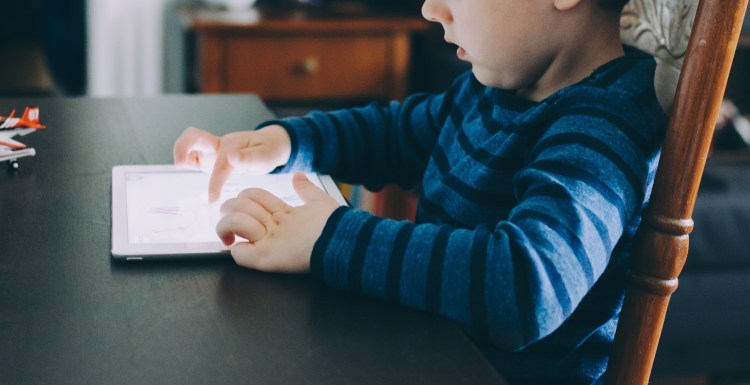Having children use technology for entertainment and education is part of modern parenting, but it’s important to make sure they don’t overuse it and to understand whether they’re getting the most from the content.
Enter FaceMetrics, which today announced it has landed $2 million in funding to build an AI assistant that reports tablet activity (iOS and Android) to parents and gamifies control of kids’ screen time.
The investment comes from Viktor Prokopenya of Belarus-based VP Capital and Larnabel Ventures, the fund of Russian investor Said Gutseriev. FaceMetrics is the fifth joint AI project between the two funds, and its app — Read2play — is the primary beneficiary of these funds.
How does Read2play work?
June 5th: The AI Audit in NYC
Join us next week in NYC to engage with top executive leaders, delving into strategies for auditing AI models to ensure fairness, optimal performance, and ethical compliance across diverse organizations. Secure your attendance for this exclusive invite-only event.
While many existing parental apps offer scheduling, location-tracking, social activity monitoring, and call-tracking, FaceMetrics combines these features and adds tracking via the tablet’s camera, looking for body and eye movements. It determines the distance between the screen and face, for example, and establishes engagement.
Before you think this all sounds a little Black Mirror, fear not. While tracking children’s expressions and emotions is fraught with privacy issues, FaceMetrics wants to ensure parents are comfortable with using that data for good.
“The greatest innovation AI offers is the ability to utilize only the conclusions that AI makes, without storing the core data itself,” Mikhail Boiko, CEO at FaceMetrics, told me. “For example, in a pre-AI world, if we had 100 cameras, the typical technological problem would have been how to compress and send all that data. In today’s post-AI world we know that we don’t need to transmit all of this data. Cameras equipped with AI can send the data only when they know it needs human attention.”
So the data itself is not stored or sent across the internet, unless in extraordinary circumstances.
“We don’t store the pictures or videos that the camera delivered,” Boiko said. “Instead we use them in real time. All we record is how much a kid reads, and how much they played. That is just two bits of data — the amount of time in each activity. Nobody’s privacy is invaded. Any online website your kid visits will collect much more data than Read2play does.”
FaceMetrics’ technology aims to reward children for diligence. “Let’s read something interesting for an hour, and then you’ll play,” the program suggests. It may follow this up with an affirmation, such as “Well done — you read carefully, and you deserve another half an hour in the game.”
Through the camera, patented technologies follow the kids’ eyes and determine if the child is reading, how carefully they are reading, and if they are tired. “You missed some paragraphs,” the application might suggest.
FaceMetrics also builds breaks into Read2play. “I want to rest and eat,” it says when the tablet requires charging. “I’m tired, put me to bed. You need rest too. Till tomorrow!” it says when it’s bedtime or the child is tired.
Information is then provided to parents in a convenient, informative, and safe way. Parents are the only ones who have access to information about their child, and it’s stored only on their device. The app complies with all requirements of both GDPR and COPPA.
Some of FaceMetrics’ technology is developed by Banuba, a company that focuses on AI, machine learning, and computer vision for real-time video processing. VP Capital and Larnabel Ventures has invested $5 million in Banuba, which has gone on to register 25 technology patents, with six approved so far, in the past two years.
FaceMetrics Read2play is for Russian and English speakers and is on pace to launch this summer. In Belarus, the app will be free. In other countries, it will be subscription-based with a rough fee of $20 per year.

